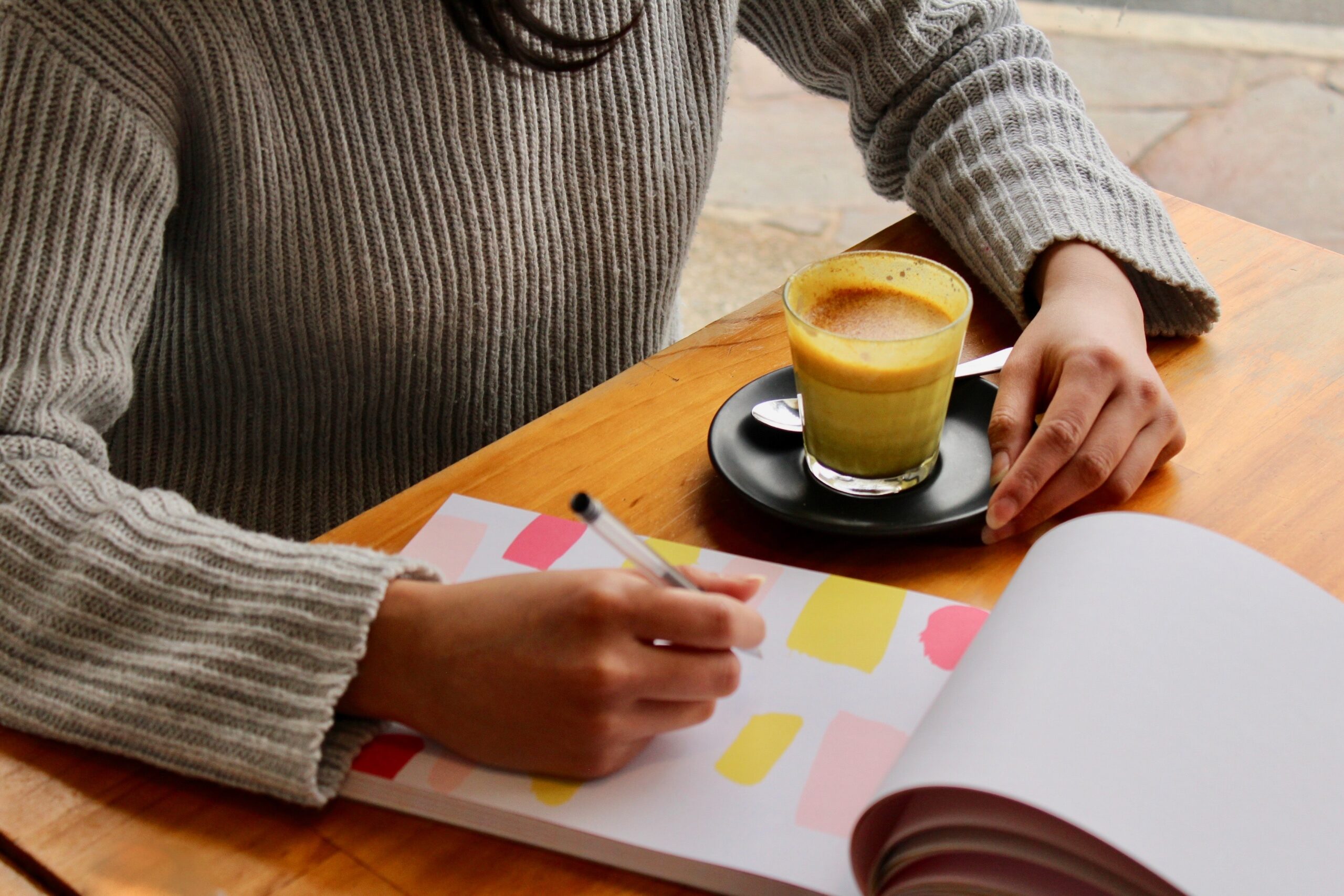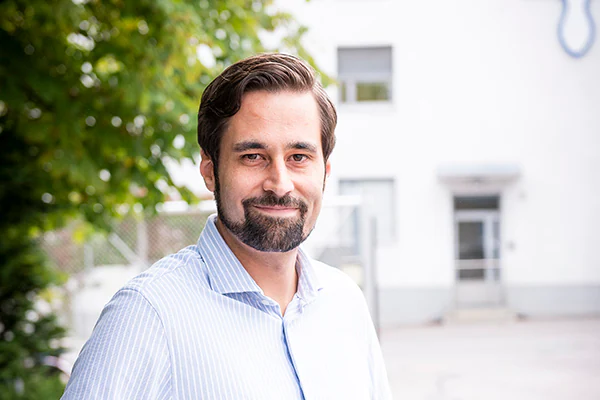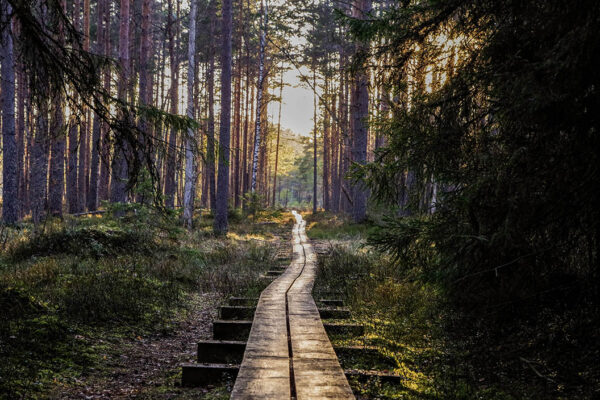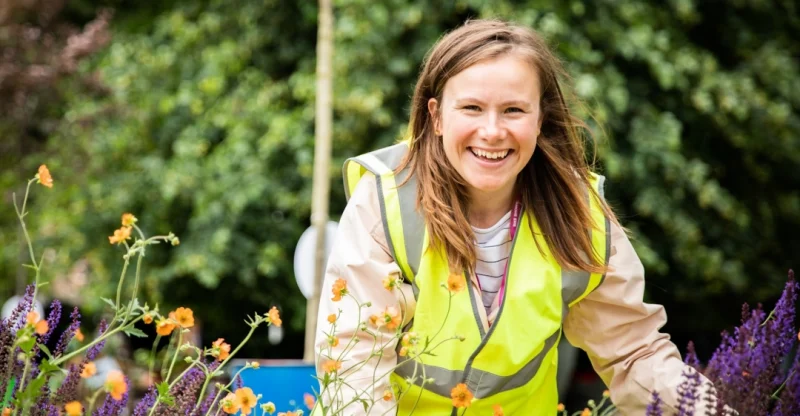
Zoe Claymore wasn’t happy at work, but it wasn’t until she took a trip away that a new path started to feel like a real possibility. Here, she shares how she’s transitioned to something more creatively satisfying, and surprised herself along the way.
What work were you doing previously?
I was a social researcher.
I fell into the work after finishing my Master’s in educational psychology.
What are you doing now?
I’m now retraining and starting my own business as a garden designer.
How did you feel in your work before you decided to make the change?
was stressed and unfulfilled.
I moved jobs in order to see if the problem was the company, rather than the work. I tried out three places before I had to accept that the work wasn’t for me.
It wasn’t that I couldn’t do it – I knew I was good at it, all my bosses said so, and I was getting glowing reviews and promotions.
But I felt empty and unfulfilled inside.
I felt that there was something ‘wrong’ with me; ‘society’ was telling me I should be happy but I just wasn’t. I took promotions because I thought I should, without questioning whether or not they were actually what I wanted.
Whilst the big wins and occasional days were good, the day to day wasn’t for me. It just didn’t pull me emotionally.
Why did you change?
Ultimately I was unhappy.
But also, I’d found something that did give me joy and more fulfilment.
I needed to create.
When was the moment you decided to make the change?
l wouldn’t say there was one moment, but instead a series of little revelations over a period of three years.
These revelations both made me realise I was unhappy in my current profession, and made me believe a new life was possible.
One of the biggest moments was after the first major lockdown lifted last year. In September I took a much needed break from work. It was the first time I’d had two weeks off in around two years. During that time my husband and I were lucky enough to go to Scotland. We stayed in a cabin by a loch, hiking, canoeing and generally escaping from the pandemic pressure.
Being there away from it all gave me the perspective to see that I was unhappy and give me an idea that changing was actually possible.
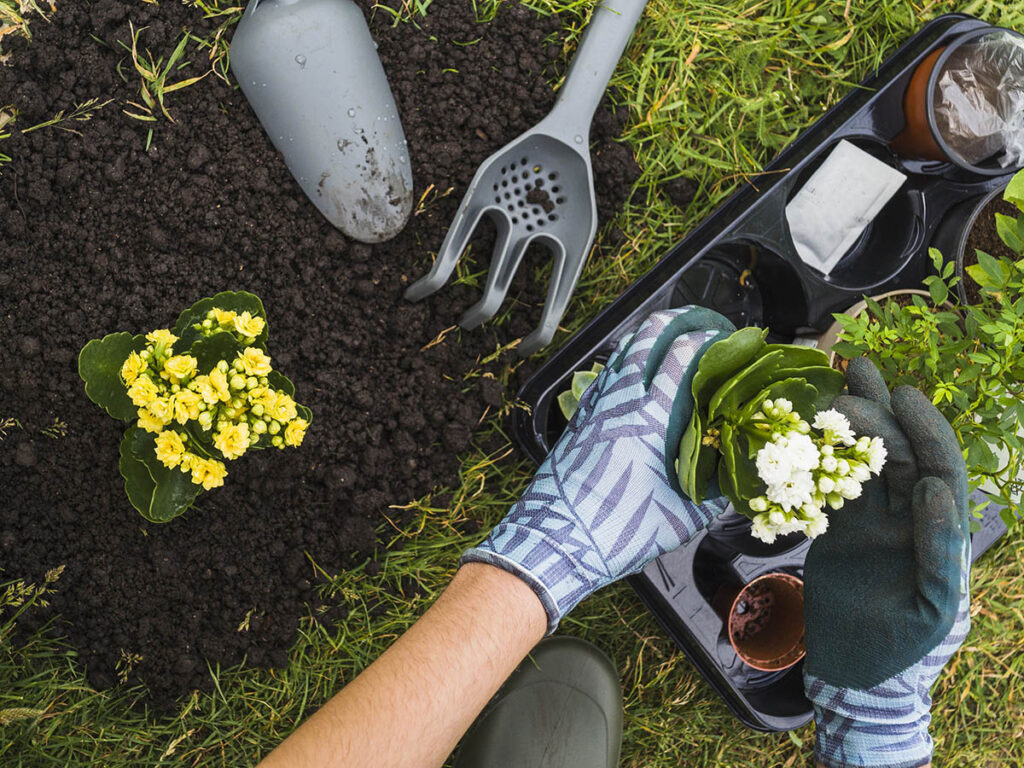
How did you choose your new career?
A few years ago I got my first garden and fell properly in love with gardening.
I realised I loved being outside and doing things with plants. I also realised that my creativity wasn’t being fully used in my current job, and that I needed to create to feel fulfilled.
I started to think that maybe I could do gardening as a job.
I decided that because I knew I liked gardening, I would try to get some work experience for that first. To do this, I compressed my hours at work into four days. I then applied to volunteer at a local heritage property to test out the realities of being a gardener on my ‘day off’.
Here I met a fantastic group of professional and amateur gardeners, who were (and continue to be) generous with their time and knowledge.
I spoke to a few people in the Landscape Architecture profession who suggested I look into garden design. It looked amazing. However, I was nervous about leaving a well-paid, secure job for something less certain.
Would it be OK to earn less money? Would it be fair on my husband if I went back to study? I’d worked so hard on my career, was it really not what I wanted?
After a ponder, I parked the idea for a while. I’d recently got a promotion at work and wanted to give it my all to see how things panned out.
A few months later the pandemic hit. Being outside and connecting with nature took on an even more significant meaning for me. Growing things went from a passion to bordering on an obsession.
It wasn’t till Scotland though, where I had time to think, that it all started to click together that gardening was something I had to try, and soon.
Are you happy with the change?
So far yes, 100%.
What do you miss and what don’t you miss?
I miss some of the people I used to work with and the social aspects of being in a team.
Garden design, especially if you’re freelance, can be quite a lonely profession. Over time, though, I hope to grow my business and collaborate, possibly employing others.
I don’t miss the lack of freedom to make my own decisions about how and where I work. Nor do I miss working with numbers, writing long reports and having to read countless academic articles.
How did you go about making the shift?
After deciding this was something I wanted to do, I thoroughly researched how other people had got into the profession.
I learnt about the professional body, talked to people within the industry, and realised that I would need to go ‘back to school’ in order to have a comprehensive base to build from, to give myself the best chance.
How did you develop (or transfer) the skills you needed for your new role?
I signed up to garden design school in order to develop the subject specific knowledge and contacts I would need to have a good shot in a competitive industry.
My old career had given gave me analytical, organisational and people skills, which could directly transfer to this new work, but I realised I needed new training to have a comprehensive understanding of construction techniques, drawing, CAD, material sourcing, planting formations and design in order to be the best designer I could be.
How did you handle your finances to make your shift possible?
To be brutally honest I am fortunate.
I have a supportive husband who’s in permanent, full-time work. Whilst we have modified our lifestyle to manage on one income, this provides some financial stability to the finances.
I’m also fortunate that I had the capital to pay the course fees and set-up costs, from a mix of lockdown savings and an inheritance I got from my grandparents.
If I hadn’t had this lump sum, I would have still gone ahead, but with a more restricted choice of courses (garden design school is expensive). I would also have tried to remain working 2-3 days a week and done a course part-time over 2-3 years, rather than one year full-time. That was how I’d done my MSc in Educational Psychology.
What was the most difficult thing about changing?
It sounds corny, but the most difficult thing was making the decision to leave, and admitting I wasn’t a failure for doing so.
I would only have failed if I had stayed, as I would have been letting myself down.
What help did you get?
I’ve had so much support from my partner, friends and family to make this possible.
My parents, in-laws and husband all helped and pitched in to help me build an exhibit at RHS Hampton Court Palace show this year. I couldn’t have done it without their help and support.
Friends and family have offered garden spaces for me to practise with and trial out. The work I’m doing for them has helped me get noticed by their friends and other family, which is chargeable.
I also joined the professional network for Garden Design, the Society of Garden Designers, which has started to open up opportunities and build contacts within the industry.
What resources would you recommend to others?
For garden design, the Society of Garden Designers website has course recommendations.
I’d also recommend going to open days and talking to more than one active professional to understand the nitty gritty of the day-to-day reality.
Shadow someone if you can, and try more than one thing out.
What have you learnt in the process?
That I have more control over my life than I had thought.
That change is less scary once I’m actually doing it.
That I’m more capable than I’d realised.
That if I feel something is wrong, it usually is. I’ve learnt to trust my gut – it’s there for a reason.
That I will learn through making mistakes.
What would you advise others to do in the same situation?
Find something that sparks joy for you and explore it.
Take your time to really get to know yourself in order to be confident in your decision.
Talk to people in the industry, get work experience, or volunteer if you can, in order to understand the day-to-day reality before taking the plunge. You never know where it may lead.
In terms of wrong turns and things not going well, I’d say be prepared for either feast or famine in the business.
Build up financial reserves and have a back-up plan (for example I know I can pick up odd hours gardening if I need to).
And go for it. If your gut is saying your current thing isn’t for you, it isn’t.
To find out more about Zoe’s services, visit https://www.zoeclaymore.com/.



